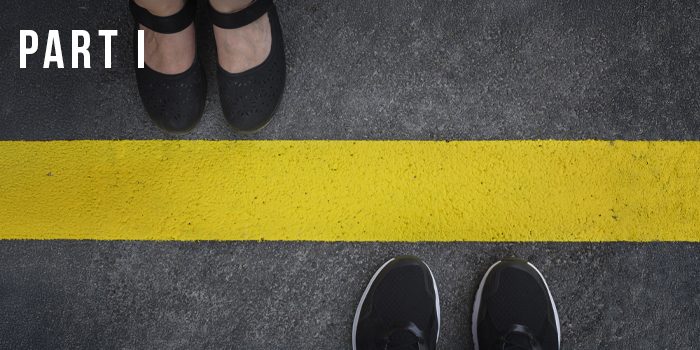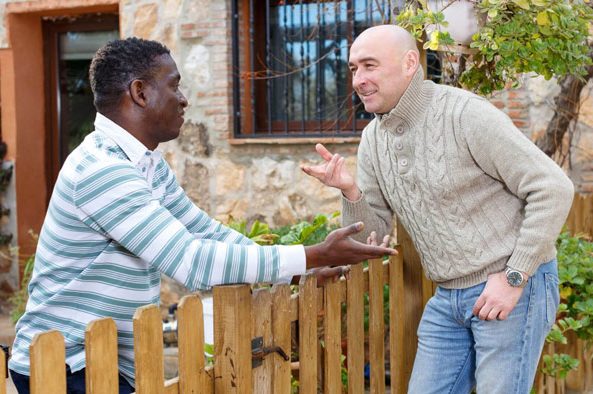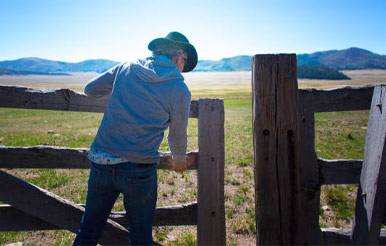Posted on January 8, 2025 by Ruth Barz, tLMHC
Mental Health

Share
Other Blog Topics
Numerous books have been written about the topic of boundaries, so I confess I feel daunted to condense the subject into a couple of short articles. Yet, this idea of setting healthy boundaries in our lives is something that I find most people struggle with, including myself.
All these questions are important, and I hope to address them in this two-part article. But first, let’s look at what you might be experiencing that shows why you need some help with setting boundaries.
 Many struggles in life, marriage, and parenting have their roots in issues of boundary setting. The dictionary defines boundary as “a line that marks the limits of an area, a dividing line; where one thing ends, and another begins.” If you own your own home, you know where your property lines are. These lines are important because they define where you need to mow the grass and what area your neighbor needs to mow. It defines which trees are your responsibility to trim and which trees belong to your neighbor. Your property line may even be outlined by a fence which keeps your neighbor’s dog out of your yard or your dog out of your neighbor’s yard.
Many struggles in life, marriage, and parenting have their roots in issues of boundary setting. The dictionary defines boundary as “a line that marks the limits of an area, a dividing line; where one thing ends, and another begins.” If you own your own home, you know where your property lines are. These lines are important because they define where you need to mow the grass and what area your neighbor needs to mow. It defines which trees are your responsibility to trim and which trees belong to your neighbor. Your property line may even be outlined by a fence which keeps your neighbor’s dog out of your yard or your dog out of your neighbor’s yard.
In our lives, boundaries are not always as visible as the fence in our backyard, but they define what is ours to be responsible for and what is not ours to be responsible for. Each of us is responsible for our own behaviors, feelings, and thoughts. Romans 14:12 says “So then each of us will give an account of himself to God.” This can be a frightening reality, yet as Christians we rejoice that Christ Jesus has paid for every one of our sinful behaviors, feelings, and thoughts. Knowing the boundary line also frees us to know that we are not responsible for other people’s behaviors, feelings, and thoughts.
In their book Boundaries, Henry Cloud and John Townsend use Galatians 6:2-5 to explain this concept more fully.
Here Paul says we are to “carry each other’s burdens, and in this way fulfill the law of Christ.” Burdens are things too heavy for us to carry alone – examples include our own addictions; the death of a loved one; mental health struggles; and any other things we do not have the resources, strength, or knowledge to carry by ourselves. In this way we are responsible to each other to help one another with our burdens. Yet, Galatians 6: 5 says, “for each one should carry their own load.” Here the word load means daily toils such as our own behaviors and the responsibilities God has given us.
Cloud and Townsend explain that problems arise when we try to carry our own “burdens” and remain in pain, or when we act like we shouldn’t have to carry our own “load” and become irresponsible.
 Just like your backyard fence probably has a gate, the idea of shutting or opening the gate is important in healthy boundary setting. We shut the gate in our backyard to keep out the neighbor’s dog who bites or the salesperson we don’t want to talk to. In our personal lives we may shut the gate or say “no” to constantly working more hours than we are scheduled to work because it is wearing us out or interfering with our family time. We shut the gate or say “no” to volunteering for one more thing at church because we do not need to be busy every night of the week.
Just like your backyard fence probably has a gate, the idea of shutting or opening the gate is important in healthy boundary setting. We shut the gate in our backyard to keep out the neighbor’s dog who bites or the salesperson we don’t want to talk to. In our personal lives we may shut the gate or say “no” to constantly working more hours than we are scheduled to work because it is wearing us out or interfering with our family time. We shut the gate or say “no” to volunteering for one more thing at church because we do not need to be busy every night of the week.
Yet in the same way, there are times we need to open the gate to let in “the good.” You may open your gate to your backyard to let the professional spray your lawn for weeds. When we have pain inside of us, we may need to open our personal boundary gate to let the friend or counselor in to hear our needs.
Boundary issues come in many different forms.
 If we set a boundary, won’t that seem unloving? Christians are supposed to love others as Christ loves us, and it may seem to you that setting boundaries will make you selfish. But setting appropriate boundaries will increase your capacity to show care to others.
If we set a boundary, won’t that seem unloving? Christians are supposed to love others as Christ loves us, and it may seem to you that setting boundaries will make you selfish. But setting appropriate boundaries will increase your capacity to show care to others.
First, God is a God of boundaries. In Scripture, He clearly tells us who He is and who He is not. Numbers 23:19 says, “God is not a man, so he does not lie. He is not human, so he does not change his mind. Has he ever spoken and failed to act? Has he ever promised and not carried it through?” This is one of many verses in the Bible that tells us God does not lie or change His mind but always keeps His promises.
Second, as Townsend and Cloud point out, there is a difference between selfishness and stewardship. Selfishness occurs when we fixate on our own desires and wants, no matter how it affects others. Stewardship means taking care of the gifts God has given us, such as our abilities, feelings, thoughts, and behaviors. This care for ourselves includes setting healthy boundaries.
In Part 2 of Healthy Boundaries (coming soon), we will look at practical ways to set boundaries in marriage and parenting, and how to deal with resistance to boundaries.
To understand these concepts at a deeper level, a good resource is the book Boundaries: When to Say Yes, How to Say No to Take Control of Your Life by Henry Cloud and John Townsend.
Ruth sees clients at Lutheran Family Service’s Dubuque, Iowa office, and is available one day a week at the Bettendorf office, and throughout the state of Iowa via telehealth.
If you or someone you know is in need of Christ-centered mental health or marriage counseling, refer to or contact us today.
Not located near Dubuque or Bettendorf, Iowa? Visit our website to see if one of our other locations is near you, or, if telehealth/distance counseling is an option at: lutheranfamilyservice.org/mental-health-counseling.
Lutheran Family Service walks with those experiencing difficult times through mental health counseling, marriage counseling, crisis pregnancy counseling, and adoption services.
More posts about Mental Health